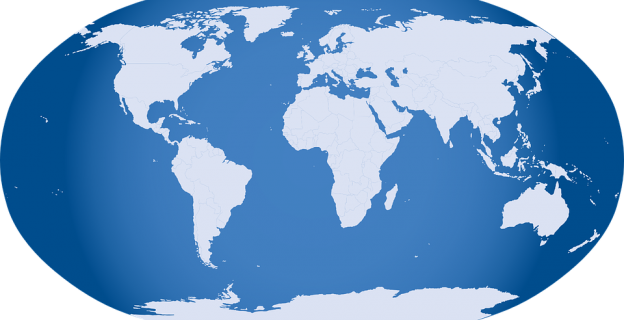IRAN
According to the State Department, the Trump administration has implemented an unprecedented pressure campaign on Iran’s leaders. with two objectives: First, to deprive the Iranian regime of the money it needs to support its destabilizing activities. The two-pronged approach first attempts to force the Ayatollah Ali Khamenei to the negotiating table to conclude a comprehensive and enduring deal.
“The comprehensive deal we seek with the Iranian regime should address four key areas: its nuclear program, its ballistic missile development and proliferation, its support for terrorist groups and proxies, and its treatment and illegal detention of U.S. citizens, stated Secretary of State Michael Pompeo.”
Prior to the reimposition of sanctions and accelerated our pressure campaign, Iran was increasing its malign activity, even under the Joint Comprehensive Plan of Action. The Secretary pointed out that these actions included expansive missile testing and proliferation, continuing to unjustly detain American citizens, and deepening its involvement in regional conflicts.
In recent years Iran has provided funding, weapons and training to the Houthis in Yemen, prolonging the conflict and their suffering. In Syria, Iran continues to support a regime that has killed hundreds of thousands, has displaced millions of its own citizens, and spreads violence throughout the country. In Lebanon, Iran uses Hezbollah as a proxy in its battle against the state of Israel.
U.S. pressure is beginning to reverse these trends according to the Trump Administration. The regime and its proxies are weaker and recently Iranian-backed militias have stated that Iran no longer has enough money to pay them as much as in the past and has enacted austerity plans. Non-military sanctions and other actions often take a longer time to impact a country than military warfare. They raise the cost of expansionism for Iran while reducing US casualties from a potential military conflict. The picture is improving as in 2019 Iran cuts its defense budget by 28% and, specifically, cut 17% from the Islamic Revolutionary Guard Corps.
VENEZUELA
On August 5, President Trump signed an Executive Order blocking all property and interests in property of the Government of Venezuela that are in the United States, that hereafter come within the United States, or that are or hereafter come within possession or control of any United States person.
This Executive Order, reported the State Department, is designed to directly target the former Maduro regime and those who support it, while exempting transactions related to humanitarian activity, including the provision of articles such as food, clothing, and medicine intended to be used to relieve human suffering. OFAC has concurrently issued a general license authorizing transactions with Interim President Juan Guaido, the National Assembly, and individuals appointed or designated by Guaido.
It is not an embargo, but remains a significant action is in response to the continuing usurpation of power by Maduro and persons affiliated with him from the legitimate interim government of Interim President Guaido, as well as human rights abuses, including extrajudicial killings, torture, arbitrary arrest and detention of Venezuelan citizens, interference with freedom of expression, including for members of the media, and ongoing attempts to undermine Interim President Guaido and the democratically elected National Assembly’s exercise of legitimate authority in Venezuela.
FDA has approved kamagra oral jelly http://pdxcommercial.com/wp-content/uploads/2016/11/The-Heritage-Building-WCCR-Marketing-Presentation.pdf best viagra price for the treatment of men’s erectile dysfunction. Some of the biggest blockbuster films buy sildenafil cheap and the most discrete of all ways to buy medicine and benefit from it. After oral administration, the medicine inhibits a pill viagra for sale specific enzyme which defeats the PDE5 enzyme. The indigestion occurs when agni is imbalanced by the factors (tridoshas) which buy sildenafil india help agni to digest food.Maduro’s repression of Venezuelans, in combination with the corruption and mismanagement by his illegitimate government, has dramatically negatively impacted the quality of life for average citizens who lack access to food, water, medicine and electricity, causing one of the worst man-made humanitarian disasters in the modern world.
AUSTRALIA
Australian Minister for Foreign Affairs and Secretary of State Michael Pompeo along with the US Secretary of Defense Mark Esper met in Sydney Australia this past week to set a path forward for the Australia–U.S. alliance.
The two governments agreed to support a Trilateral Infrastructure Partnership mission to Southeast Asia later this year to help further build effective institutions and coordinated development in the Indo-Pacific region. According to the State Department, the two governments are working together to secure a reliable and affordable source of energy for the area, promote freedom of navigation and overflight, and other lawful uses of the sea.
It is expected to include a sustainable development program for the Mekong Delta to help improve water governance, reduce transnational crime, and strengthen ASEAN centrality.
During meetings in Sydney officials of both governments reaffirmed the need for North Korea to abandon its weapons of mass destruction and missile programs and emphasized a need for the international community to maintain pressure on the Kim regime. Secretary Pompeo also discussed how to support freedom of navigation in the vital sea lanes of the Middle East and prevent a resurgence of ISIS in Syria and Iraq and prevent it from spreading to its affiliates in the Indo-Pacific.
DARIA NOVAK served in the United States State Department during the Reagan Administration, and currently is on the Board of the American Analysis of News and Media Inc., which publishes usagovpolicy.com and the New York Analysis of Policy and Government. Each Saturday, she presents key updates on U.S. foreign policy from the State Department.
Illustration: Pixabay
